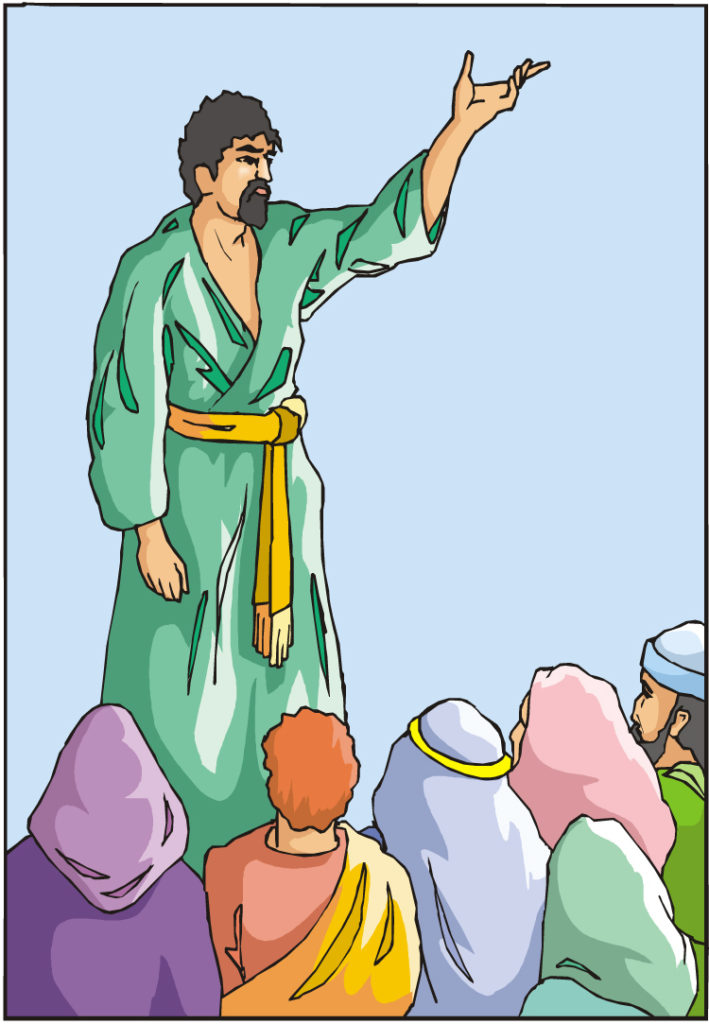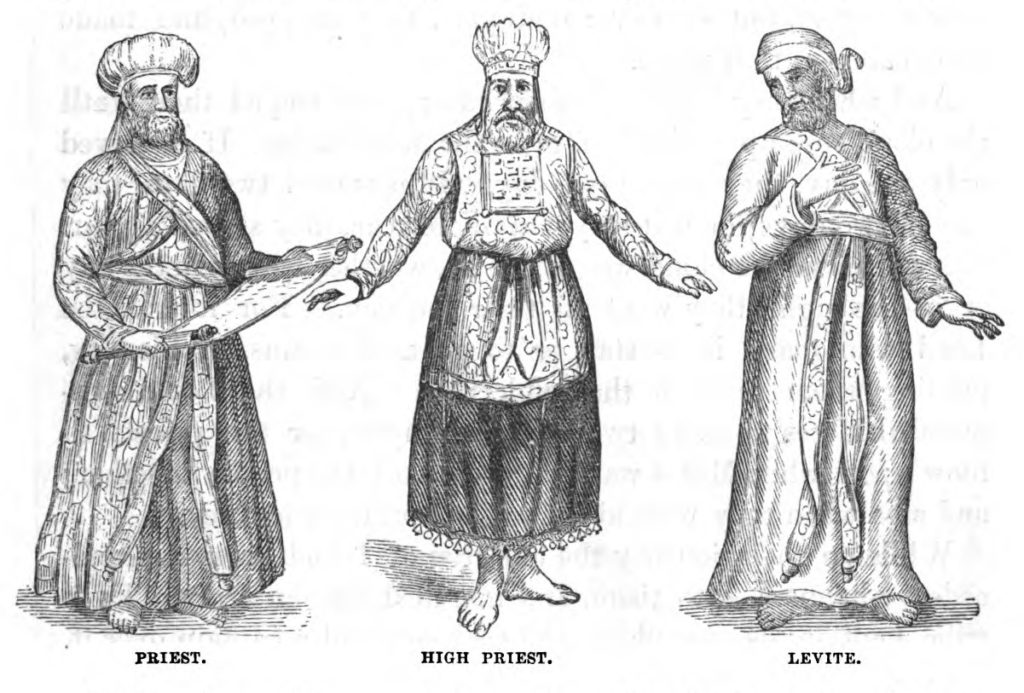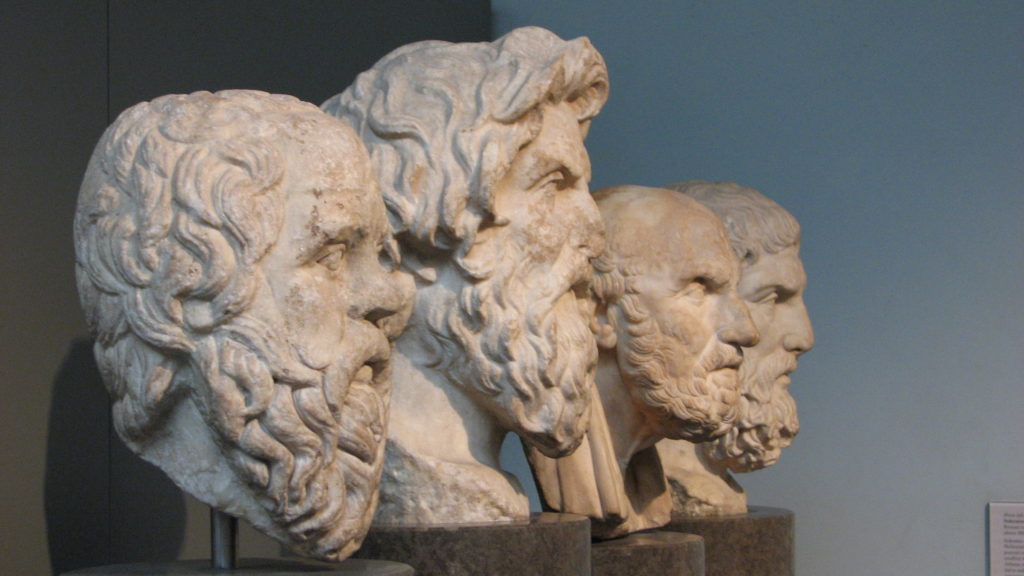Category Archives: Evangelism
My Secret: Finding the Meaning of Life
Why Are YOU NOT Telling Others About Yeshua?
How many of you actually share the gospel with others on a regular basis? This is not a popular topic, even though Yeshua/Jesus commanded us to do so in the Great Commission. Why are you afraid to point others to the gospel? You are missing out on one of the greatest blessings in life, when you share Yeshua with others. How is this? In this video, Nathan shares how to overcome the fear of being a “fool” for Yeshua, so that you can become a river of life blessing to those around you and receive heaven’s blessings on your own life as well.
On Being a “Fool” for Yeshua in Confronting the Forces of Antichrist
1 Corinthians 4:10, Fools for Messiah’s sake.
The Spirit of Antichrist Is Rising Up and Taking Over

Can’t you see it? Can you hear it? The dust clouds and the sound of marching feet from Satan’s foot soldiers who are driven by the spirit of Antichrist intent of conquering the earth. These determined warriors are on a murderous warpath and in the crosshairs of their weapons of mass destruction are the saints of the Most High Elohim. What are the saints supposed to do about this?

The pounding of jackboots of Satan’s fascistic thugs can be heard everywhere as they advance relentless across the face of the earth. They have a thousand faces and numerous front organizations carrying their banner and supporting their nefarious cause. In their wake is death, darkness and the destruction of everything that is good, honorable, decent and righteous: the family, marriage, godliness, law and order, civility, honor and respect for others, love of truth, and the fear of Elohim and his ways. Usurping its place is atheism, secularism, leftism, deprivation of civil liberties, extreme hedonism, lawlessness, licentiousness, anarchy, chaos and death. The driving force behind it all is a rabid hatred of Elohim, Yeshua the Messiah, the Bible and anyone who is remotely associated with these. And no surprise. Yeshua and his apostles prophesied that this would occur in the last days just prior to his return. We can read these prophecies in Matthew chapter 24, the book of Revelation, in John’s first epistle and elsewhere. Moreover, these satanic armies are empowered and financed by the most powerful and seemingly unstoppable forces that control this planet. So is there anything that the true followers of Yeshua can do about this? If so, what should our response be?
In the Face of Evil and Death, What Did the Biblical Saints Do?
The Bible is full of stories of YHVH’s people facing overwhelming odds in the face of their enemies. For example, think of the Israelites against the Pharaoh and his armies, or confronting the Canaanites guarding the Promised Land, or Gideon against the Midianites, Samson against the Philistines, David against Goliath and the list goes on. But let’s be honest. To most of us, the biblical record of the valiant heroism and victories of YHVH’s saints over their enemies are nothing more than wonderful stories from dim antiquity and have little or no relevance to us today in our present situation. However, if we scroll forward in history closer to our time, we might find some biblical scenarios that are more analogous to the times in which we are now living. For example, in the book of Acts, when the Jewish murderers of Yeshua were on a rampage against the disciples of Yeshua, what was the saints’ response? Run and hide cowering in a corner? No. We read,
Now, Lord, look on their threats, and grant to Your servants that with all boldness they may speak Your word, by stretching out Your hand to heal, and that signs and wonders may be done through the name of Your holy Servant Yeshua.” And when they had prayed, the place where they were assembled together was shaken; and they were all filled with the Holy Spirit, and they spoke the word of Elohim with boldness. (Acts 4:29—31)
Their prayerful plea to heaven wasn’t, “O Lord protect us from our enemies.” Rather, it was, “O Lord, grant us boldness to preach the gospel with signs and wonders following as Yeshua commanded us to do in Mark 16:15–18 and Matthew 28:19–20.”
The “Foolishness” of Preaching the Gospel

Preaching the gospel seems like a bizarre and foolish if not an insane response to those who are intent on depriving us of our God-given or “inalienable rights… [of] life, liberty and the pursuit of happiness” to quote the Declaration of Independence of the United States of America. This is because:
[T]he natural man does not receive the things of the Spirit of Elohim, for they are foolishness to him; nor can he know them, because they are spiritually discerned. (1 Cor 2:14)
It is also because the ways of Elohim are not the ways of men.
For My thoughts are not your thoughts, nor are your ways My ways,” says YHVH. For as the heavens are higher than the earth, so are My ways higher than your ways, and My thoughts than your thoughts. (Isa 55:8–9)
And as Paul stated,
Because the foolishness of Elohim is wiser than men, and the weakness of Elohim is stronger than men. (1 Cor 1:25)
For YHVH has chosen the “foolish” method (in the eyes of the world) of gospel preaching to advance his kingdom and to confuse the world.
For the message of the cross is foolishness to those who are perishing, but to us who are being saved it is the power of Elohim. For it is written: “I WILL DESTROY THE WISDOM OF THE WISE, AND BRING TO NOTHING THE UNDERSTANDING OF THE PRUDENT.” Where is the wise? Where is the scribe? Where is the disputer of this age? Has not Elohim made foolish the wisdom of this world? For since, in the wisdom of Elohim, the world through wisdom did not know Elohim, it pleased Elohim through the foolishness of the message preached to save those who believe. (1 Cor 1:18–21)
Moreover, not only has YHVH chosen the seemingly “foolish” method of preaching the gospel to expose the genuine foolishness of this world’s “wisdom,” but he has chosen the “foolish” people (in the world’s eyes) to do the preaching.
For you see your calling, brethren, that not many wise according to the flesh, not many mighty, not many noble, are called. But Elohim has chosen the foolish things of the world to put to shame the wise, and Elohim has chosen the weak things of the world to put to shame the things which are mighty; and the base things of the world and the things which are despised Elohim has chosen, and the things which are not, to bring to nothing the things that are, that no flesh should glory in His presence. (1 Cor 1:26–29)
Are You Willing to Be a “Fool” for Yeshua Like Paul?
So are you willing to be a “fool” for Yeshua? Paul, the great apostle who help to turn the world upside down for Yeshua the Messiah (Acts 17:6), considered this label to be a compliment.
We are fools for the Messiah’s sake, but you are wise in the Messiah! We are weak, but you are strong! You are distinguished, but we are dishonored! (1 Cor 4:10)
One verse earlier, Paul declared that in preaching the gospel “we have been made a spectacle [literally, a public spectacle as in a theatrical performance] to the world, both to angels and to men” (1 Cor 4:9).
This is a pretty heavy duty thing for most people to consider doing. You may be thinking,“What will people think if I become a fool for Yeshua like Paul?” Or, “I’m not cut out for this. This isn’t my calling.” Or, “I don’t have the personality for preaching the gospel to others.” Well, frankly, there’s no end to the excuses that people can invent NOT to do what Yeshua has called and commissioned his disciples to do! Go ahead and rip that page out of your Bible and ignore Yeshua’s command to “Go ye therefore into all the world and preach the gospel.” If you do, you do NOT have a Holy Bible, but a Holey Bible, the Swiss Cheese Version—one with holes in it with pages that you have ripped out of it. Moreover, what did Yeshua say? “If you [really] love me, keep my commandments…He who has My commandments and keeps them, it is he who loves Me. And he who loves Me will be loved by My Father, and I will love him and manifest Myself to him” (John 14:15, 21). One of his commandments was to preach the gospel to the whole world. The whole world starts just outside your doorstep…
How to Overcome the Evil One
Some of you will stop reading right here, and that’s your choice to dismiss truth that challenges you out of our disobedient and lukewarm complacency. You might be saying, “He has gone too far this time.” Well, your argument is not with me but with the Word of YHVH Elohim and Yeshua the Messiah. He may be your Savior, but his he your Lord and Master? Are you doing what he told you to do, or only those things that suit YOUR fancy? For those of you who are serious about your spiritual walk and about serving Yeshua your Master who bought and paid for you with his blood, read on. Remember, we are discussing how to confront the spirit of this age—the demonic spirit of Antichrist that is sweeping relentlessly across the globe a tsunami. What are you going to do about it? Cower in the corner or run and hide, or occupy until Yeshua until he comes not living your life unto death? Or are you going to confront this evil spirit with the most powerful and life-changing weapon that has the full force and power of the Most High Elohim, the sovereign and all powerful Creator and Ruler of the universe behind it? This is what John wrote of those end time saints who deigned to stand up against Satan and his henchmen:
So the great dragon was cast out, that serpent of old, called the Devil and Satan, who deceives the whole world; he was cast to the earth, and his angels were cast out with him. Then I heard a loud voice saying in heaven, “Now salvation, and strength, and the kingdom of our Elohim, and the power of His Messiah have come, for the accuser of our brethren, who accused them before our Elohim day and night, has been cast down. And they overcame him by the blood of the Lamb and by the word of their testimony, and they did not love their lives to the death. (Rev 12:9–11, emphasis added)
A major aspect of overcoming the evil one and his minions in the last days involves “the word of our testimony.” A word is something that is spoken to others and involves sharing the gospel message with others including your personal testimony of what Yeshua has done for you. This may mean that you have to put yourself out there past your comfort zone and even do what doesn’t come naturally to you. In this regard, what has YHVH promised to do for those who step out in faith and obedience trusting him as they share the gospel with others?
Open your mouth wide, and I will fill it. (Ps 81:10)
Also I say to you, whoever confesses Me before men, him the Son of Man also will confess before the angels of Elohim. But he who denies Me before men will be denied before the angels of Elohim.…Now when they bring you to the synagogues and magistrates and authorities, do not worry about how or what you should answer, or what you should say. For the Holy Spirit will teach you in that very hour what you ought to say. (Luke 12:8–9, 11–12)
And He said to me, “My grace is sufficient for you, for My strength is made perfect in weakness.” Therefore most gladly I will rather boast in my infirmities, that the power of the Messiah may rest upon me. (1 Cor 12:9)
“This is the word of YHVH to Zerubbabel: ‘Not by might nor by power, but by My Spirit,’ Says YHVH of hosts.…For who has despised the day of small things? (Zech 4:6, 10)
If Yeshua Calls YOU a Priest, Then Act Like One!

Exodus 28
Scripture reveals that the saints are to be a holy or set-apart (kadosh) priesthood,
not a profane (worldly and polluted) one. Which are you? Kadosh or profane?
YHVH Is Preparing His Saints to Be a Kingdom of Priests
In the Bible, YHVH declared that it was the destiny of the Israelite nation to become a kingdom of priests (Exod 19:6). As such, he commissioned them to become a light to the heathen nations around them and to lead them to YHVH—the one true Elohim (Deut 4:6–8). This is why YHVH in his sovereignty positioned the nation of Israel at the crossroads of the major trade routes of the ancient world—between three continents: Africa, Asia and Europe. Israel did not fulfill this prophetic destiny because of sin and rebellion. They desired to conform their lives to the standards of the wicked nations around them rather than conform to YHVH’s standards of righteousness as revealed in the Torah-law. While ancient Israel failed in its divine mission to evangelize the world, in these last days, through Yeshua the Messiah, YHVH has raised up his people (the Israel of Elohim, Gal 6:16) to be that holy priesthood tasked with spreading the good news of the kingdom of Elohim globally (1 Pet 2:9; Dan 7:18; Rev 1:6; 5:10; 20:6; Isa 66:21). Let us now explore how YOU be a part of fulfilling this divine commission.
First, who are you? Knowing this will enable you to understand your divine calling and mission.
Those who come to faith in Yeshua the Messiah become children of Abraham and are thus Israelites (Rom 4:16; 9:8-11; Gal 3:7, 9, 14, 28-29) who have been grafted in to the olive tree of Israel (Rom 11:11–32); they are the current “Israel of Elohim” (Gal 6:16). Ancient Israel never fulfilled its divine calling to be a kingdom of priests and a light to the nations of the world. YHVH’s calling and purposes for Israel are without repentance (Rom. 11:29). What ancient Israel failed to accomplish because of disobedience, rebellion and faithlessness will be left to grafted in Israel—the one new man in Yeshua the Messiah—to accomplish. Yeshua commissioned his disciples to preach the good news (or gospel) of the kingdom of Elohim to the world (Mark 16:15; Acts 1:8). But more than that, his disciples were to become that kingdom of priests that ancient Israel missed the opportunity to become.
We read in the Testimony of Yeshua (or New Testament) that the saints of YHVH will be called kings and priests (or a kingdom of priests) of YHVH-Yeshua the Messiah and will reign with him during the 1000-year Millennium or Messianic Age.
[T]o him, the one who loves us, who has freed us from our sins at the cost of his blood, who has caused us to be a kingdom, that is, cohanim [priests] for YHVH, his Father… (Rev 1:5–6, CJB)
[At] the cost of blood you ransomed for YHVH persons from every tribe, language, people and nation. You made them into a kingdom for YHVH to rule, cohanim [priests] to serve him and they will rule over the earth. (Rev 5:9–10, CJB)
Blessed and set-apart is anyone who has a part in the first resurrection; over him the second death has no power. On the contrary, they will be cohanim [priests] of YHVH and of Messiah, and they will rule with him for the thousand years. (Rev 20:6, CJB)
During the Millennium, Messiah will be the King of kings. His government will be a theocracy with him, as the High Priest-King, at the head. The children of Israel operated under a theocratic from of government with Moses as the priest-king (he was from the priestly tribe of Levi and was called a king in Deut 33:4-5) as the human head of state. David Stern in his Jewish New Testament Commentary (p. 10) describes the role of the biblical priest to be like that of a prophet and to serve as spokesman and mediator between YHVH and man. The prophet speaks to man on behalf of YHVH, the priest to YHVH on behalf of man. In terms of practical job-description their primary duty was to offer sacrificial animals on the altar.
Of those who will be the priests to reign with Messiah during the Millennium, Christian commentator Matthew Henry says in his commentary on Revelation 1:5-6 that Messiah has made believers kings and priests to YHVH and his Father. As such they overcome the world, mortify sin, govern their own spirits, resist Satan, prevail with YHVH in prayer, and shall judge the world.”
This is an apt description of those who will qualify to become priests in YHVH’s kingdom, but let’s define some words Henry uses in his descriptions. How does Scripture define sin? Sin in its simplest definition is the transgression of YHVH’s Torah-law (1 John 3:4). Henry says that the Saints as priests will “judge the world.” What does this mean? Do you know of any secular judge who makes judgments without following some legal code upon which civil law is based? Of course not. What legal code is Scripture based upon? The Torah-law YHVH gave to the children of Israel through Moses. In numerous places YHVH instructed the priests and kings of that time to rule and judge on the basis of his Torah-law. When they failed to do so YHVH sent prophet after prophet to warn them to turn from their wicked ways and return to following YHVH’s laws.
What standard of righteousness do you think YHVH’s kings and priests will rule and judge from during the Millennium? There is only one standard of truth outlined in Scripture: that is the Torah (Ps 119:142, 151), which is YHVH’s Torah, which by strict etymological and scriptural definition simply means YHVH’s “instructions, teachings and precepts in righteousness.” Since YHVH’s standards of righteousness do not change, for his character and nature do not change (Mal 3:6) despite what religious men may say or do, it stands to reason that YHVH’s kings and priests will be Torah-obedient set-apart or holy ones (or the saints). In fact, this is how the book of Revelation defines the saints: they keep the Torah-commandments of YHVH and have faith in Yeshua the Messiah (Rev 12:17; 14:12). Yeshua goes on to say in Matthew 5:19 that those who keep his Torah-law will be called the greatest in his kingdom (i.e. they will be kings and priests), while those who do not keep his Torah-law will be called the least in his kingdom. In other words, the higher the level of obedience to Torah the higher will be one’s rewards and responsibilities in YHVH’s kingdom. Yeshua told his disciples that if they loved him they would keep his (Torah) commandments (John 14:15, 21).
The Saints Are Called to Be a Set-apart (Kadosh) Nation
If you have repented of your sins, been washed in the blood of the Lamb and been born of the Holy or Set-apart Spirit (Heb. Ruach haKodesh) you are part of a set-apart priesthood. This is your identity according to Scripture. Get this into your spirit and every day live out the reality of it!
Continue readingExplaining the Correlation Between Faithfulness and Miraculous Faith

Luke 17:5–10, Increase our faith. As if often the case, Yeshua’s answer to the disciples’ request to increase their faith is a bit enigmatic. Let us explore the connection between faithfulness and miracles of faith.
In this passage of Scripture, Yeshua answers his disciples’ request by making the terse statement that a small amount of faith produces great, even miraculous, results, and then he launches into a discussion about faithful attendance to duty, and ends the discussion there. What do these seemingly discordant statements have to do with each other? The implication is that faith comes as a result of being faithful, that is, by being a faithful doer of the master’s will.
Let us dig deeper and demystify the connection between faith and faithfulness. Consider this. What is the relationship between faith and faithfulness? When one is faithful to his master’s will and is faithfully executing his responsibilities, what happens? By immersing oneself in the will of his master with one’s whole heart, one will be totally in tune with the master. He will know the heart, mind and will of his master. He will know the desires of the master, how the master thinks and what the master wants him to do, and what the master wants him to do next. On this basis and from this spiritual launch pad, the servant can extend his faith and predict the will of the master—what the master wants him to do next, and then the servant can step out in faith and accomplish it, even if it requires a miracle to do so.
As an example of the connection between faith and faithfulness, let’s consider Yeshua’s command to his disciples to preach the gospel to all nations. Referred to as “The Great Commission,” Yeshua promised that certain miraculous signs and wonders would follow his disciples when they faithfully fulfill this command (Mark 16:15–18). One often hears Christians wondering why signs and wonder why they do see many miraculous signs and wonders happening today. Maybe it is because they are not being faithful to the Master’s command to preach the gospel to the whole world or at least to boldly sharing the gospel with those around them. The preaching of the gospel is just one example of miracles of faith following obedience.

An example of stepping out in faith from the launch pad of faithfulness based on fulfilling the Master’s will is Yeshua the Master’s will for his redeemed believers to expand the kingdom of heaven by sharing the gospel with others. Sharing the gospel with others goes hand-in-hand with the Master’s will to reverse the effects of the kingdom of darkness by healing the sick and casting demons out of oppressed people (Mark 16:15–18). In this manner, kingdom of heaven is expanded one life at a time as per the heart and will of Yeshua. The preacher of the gospel should understand this correlation between faithfulness and miraculous faith, which is why after sharing the gospel with others, one can expect to heal the sick and cast demons out of the oppressed.
It is really that simple; it is a matter of cause and effect. Faithfulness leads to faith resulting in miracles.





